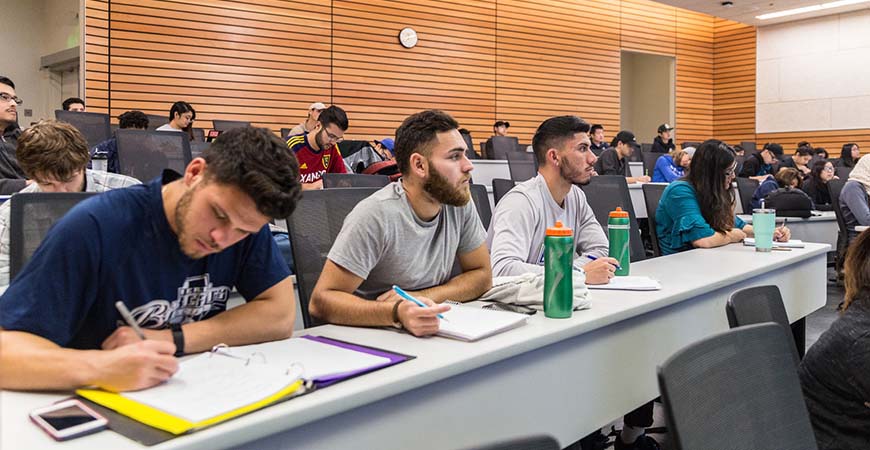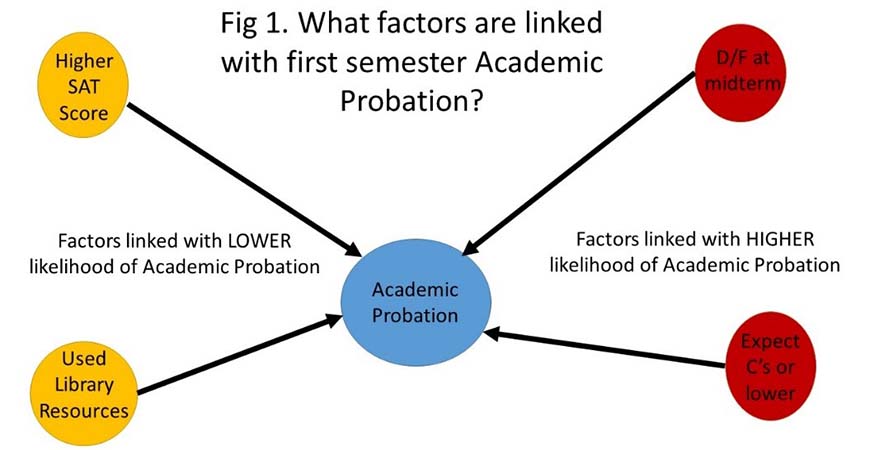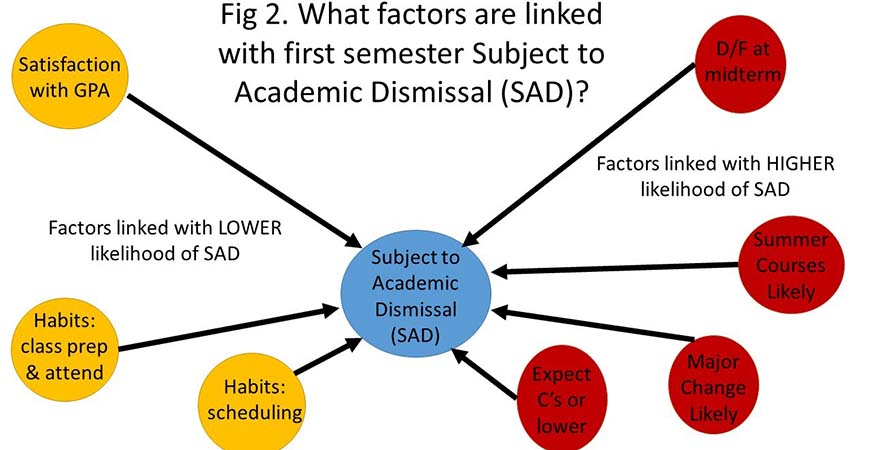
The transition from high school to college is key for any student — but particularly new UC Merced undergraduates, the majority of whom are the first in their families to attend college.
A recent IRDS report using survey and institutional data sheds light on key factors that might help UC Merced faculty and staff aid our students with a smoother transition. The report shows that helping students adopt good academic habits early on, and actively identifying factors that can indicate students are struggling, can help lead to interventions to improve student success and retention.
IRDS combined student responses on our annual New Student Survey , which focuses on the transition from high school to college, with student background factors and midterm grade performance. Next, we looked at what factors best help us understand student academic standing at the end of a student’s first semester and retention to their second semester.
At the end of their first semester, new students can be in good academic standing, with a GPA at or above 2.0, or poor academic standing. Those in poor standing are either placed on academic probation (GPA between 1.5 and 2.0) or subject to academic dismissal (SAD) if their GPA is below 1.5.

Compared to students in good standing, students who had higher SAT scores and who used library resources were less likely to be on academic probation at the end of their first semester; however, those who received at least one D or F grade at midterm and who expected final course grades of C’s or lower were more likely to be on academic probation (Fig 1).
Students who expected to be satisfied with their semester GPAs and who engaged in good academic habits, specifically preparing for and attending class and scheduling activities, were less likely to be SAD (Fig 2). Conversely, those who received at least one D or F grade at midterm, who expected final course grades of C’s or lower, and who thought it likely that they would change majors or take summer courses were more likely to be SAD.
Students who engaged in good academic habits, specifically scheduling activities, were more likely to be retained to the second semester; however, students who received at least one D or F grade at midterm, who expected final course grades of C’s or lower, and who thought it likely they would leave UC Merced were less likely to be retained.
The factors that were key across all of the analyses were receiving at least one D/F grade at midterm and expecting final course grades of C’s or lower. This shows the importance of midterm grades, which can help faculty and staff identify students at risk of poor standing at the end of their first term and of not being retained to their second term.
It also seems that students have a good idea of where they stand academically and that many can likely identify when they are struggling academically. This could aid with intervention efforts and campaigns to share resources. UC Merced already requires interventions for students who receive poor midterm grades, and the university continues to develop and refine these strategies.
Though there were some different findings across the analyses, they do suggest other areas to help new students in their transition to UC Merced. For instance, helping students to develop academic habits like engaging in scheduling activities and reinforcing the importance of preparing for and attending class might also be useful (and are currently addressed, for example, in the ASCEND new student conference during summer orientation).
Also, having conversations with students who express expectations of leaving UC Merced, changing majors or taking summer courses, could also be helpful for better understanding their goals and academic plans to aid them with goal setting and the transition to college.
Full reports ( Research in Brief and Full Report ) can be found on the IRDS website. Please contact Cinnamon Danube with questions.







